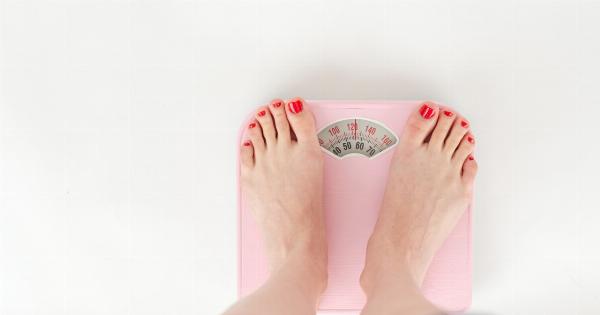Losing weight is a common goal for many people, and there are countless diets and exercise regimens that promise quick results. However, one factor that is often overlooked in weight loss efforts is the role of sleep.
While it may seem counterintuitive, getting more sleep can actually aid in weight loss. In this article, we will explore the reasons behind this phenomenon and provide some tips on how to lose weight with more sleep.
The Link Between Sleep and Weight Loss
Numerous studies have shown a strong correlation between inadequate sleep and weight gain. Lack of sleep can disrupt the body’s hormones, which can lead to an increased appetite and a decreased metabolism.
In fact, research has shown that individuals who consistently get less than seven hours of sleep per night are more likely to be overweight or obese.
One of the key hormones affected by sleep is leptin, which is responsible for signaling feelings of fullness to the brain. When the body is sleep-deprived, it produces less leptin, leading to increased cravings and overeating.
In addition, insufficient sleep causes an increase in another hormone called ghrelin, which stimulates appetite.
Moreover, lack of sleep can also lead to reduced willpower and motivation to engage in healthy behaviors. When we are tired, we tend to reach for sugary and high-calorie foods for an instant energy boost.
Additionally, fatigue can decrease our desire to exercise, leading to a more sedentary lifestyle.
The Importance of Quality Sleep
Getting enough sleep is important, but the quality of sleep is equally vital for weight loss. It is not just about the number of hours spent in bed; it is about the quality of those hours.
Poor sleep quality can impact hormones and bodily functions, making it harder to shed those extra pounds.
To improve sleep quality, it is necessary to create a conducive sleep environment. Make sure your bedroom is dark, quiet, and at a comfortable temperature.
Avoid screens and stimulating activities before bed, as they can interfere with your ability to fall asleep. Establish a regular sleep schedule by going to bed and waking up at the same time each day, even on weekends.
The Ideal Amount of Sleep for Weight Loss
While individual sleep needs may vary, most adults require between seven and nine hours of sleep per night. However, some individuals may need as little as six hours or as much as ten hours to feel fully rested.
It is important to listen to your body and adjust your sleep patterns accordingly.
If you are trying to lose weight, aim for at least seven hours of quality sleep each night.
By getting enough sleep, you will optimize your body’s hormone production, increase your energy levels, and improve your ability to make healthier choices throughout the day.
Tips for Getting More Sleep
If you struggle with getting enough sleep, try implementing the following tips into your nighttime routine:.
1. Establish a Bedtime Routine
Creating a relaxing bedtime routine can help signal to your body that it is time to wind down and prepare for sleep.
This could include activities such as reading a book, taking a warm bath, or practicing relaxation techniques like meditation or deep breathing exercises.
2. Limit Caffeine and Alcohol
Caffeine and alcohol can interfere with your sleep patterns and negatively impact the quality of your sleep. It is best to limit or avoid consuming these substances, especially in the hours leading up to bedtime.
3. Create a Comfortable Sleep Environment
Invest in a supportive mattress and comfortable bedding to create an optimal sleep environment. Keep your bedroom cool, dark, and quiet to promote better sleep.
Consider using earplugs, an eye mask, or a white noise machine if you are easily disturbed by noise or light.
4. Exercise Regularly
Engaging in regular exercise can help regulate your sleep patterns and promote better sleep. However, avoid vigorous exercise close to bedtime, as it can have a stimulating effect and make it difficult to fall asleep.
5. Manage Stress
Stress and anxiety can interfere with your ability to fall asleep and stay asleep. Find healthy ways to manage stress, such as practicing yoga, journaling, or talking to a trusted friend or therapist.
Establishing a relaxing bedtime routine can also help reduce stress levels before sleep.
6. Avoid Screens Before Bed
The blue light emitted by screens, such as smartphones, tablets, and televisions, can disrupt your sleep patterns. Limit your exposure to screens in the hours leading up to bedtime, or consider using blue light-blocking glasses.
7. Watch Your Diet
Eating heavy meals or foods high in sugar or caffeine close to bedtime can disturb your sleep. Opt for lighter meals and snacks that promote relaxation, such as a warm cup of herbal tea or a small serving of whole-grain carbohydrates.
8. Seek Professional Help
If you consistently struggle with getting enough sleep or suffer from a sleep disorder such as insomnia or sleep apnea, it may be beneficial to seek help from a healthcare professional.
They can provide guidance and treatment options to improve your sleep quality.
The Bottom Line
When it comes to weight loss, sleep should not be overlooked. Aim for at least seven hours of quality sleep each night to optimize your body’s functions and increase your chances of success on your weight loss journey.
By prioritizing sleep and making it a part of your healthy lifestyle, you will not only shed those extra pounds but also enjoy improved overall well-being.




























